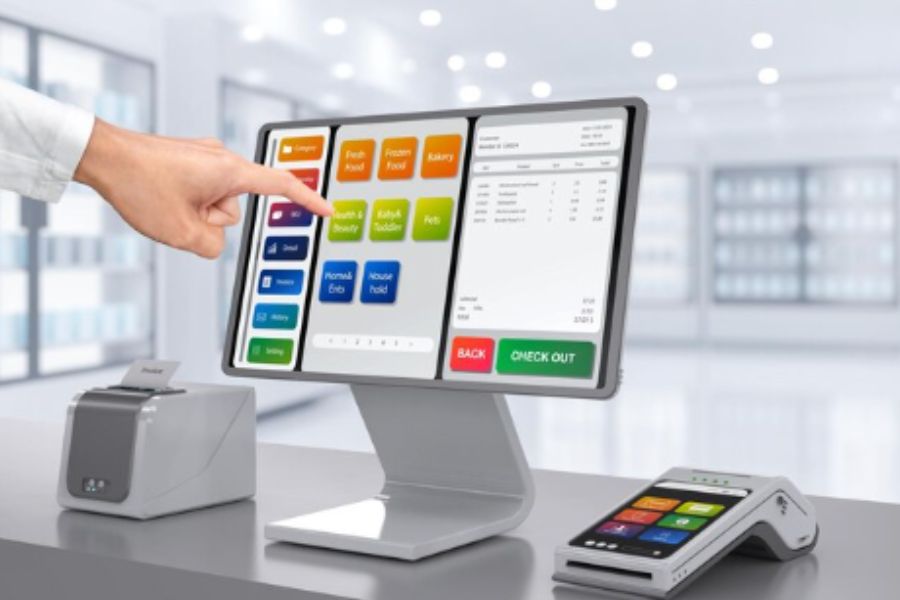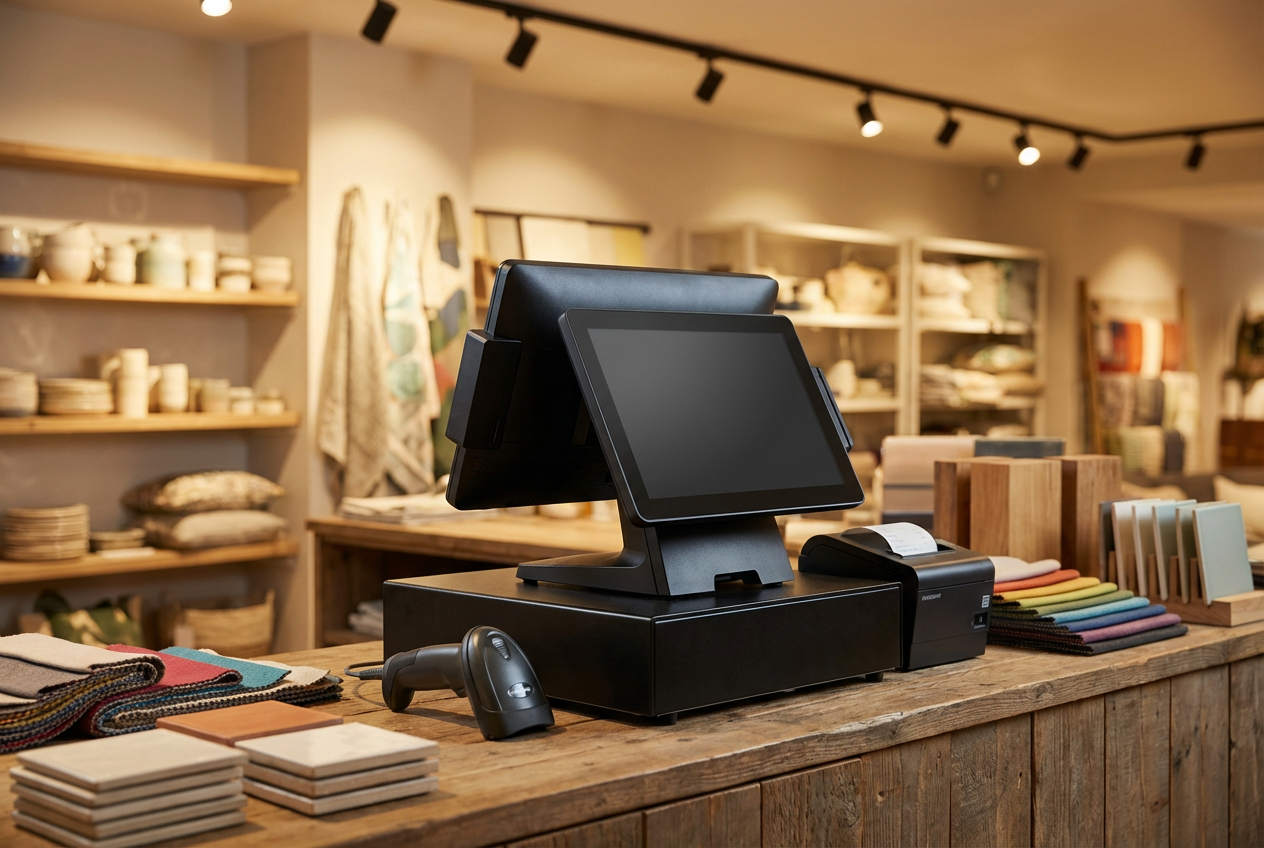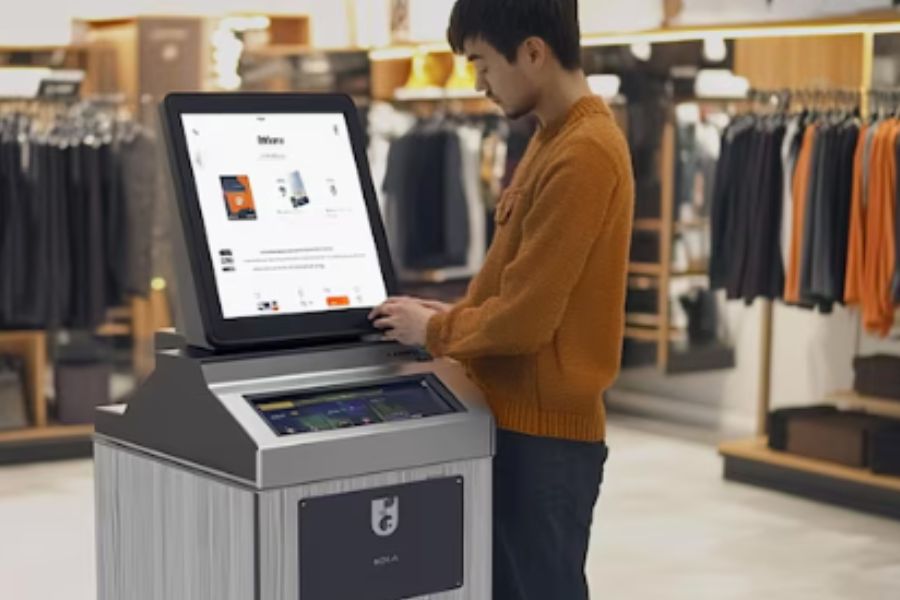Choosing the best POS system for wholesale can transform your business’s efficiency and profitability. Many wholesale operations still struggle with outdated systems that cause inventory errors, slow down transactions, and create accounting headaches. A modern POS solution should match your specific wholesale needs – from bulk pricing to multi-location management. Before investing in new POS software, ensure it includes these key features that will streamline your operations and help your wholesale business grow.
Highlights:
- Unlike retail POS systems, a wholesale POS must handle larger order volumes, flexible pricing structures, and multi-location inventory with greater precision.
- Key features for wholesale include real-time inventory tracking, customer-specific pricing, mobile access, integrated CRM, and connections to accounting, logistics, and eCommerce tools.
Key Differences Between Retailers and Wholesalers
Retailers and wholesalers share some POS requirements but operate under distinct business models that shape their technology needs.
- Customer base
Retailers sell products directly to end consumers through stores, websites, or other direct sales channels.
Wholesalers operate in the B2B (business-to-business) space, serving retailers, other wholesalers, and industrial consumers. Their transactions involve established business relationships rather than individual shoppers.
- Order size
Retailers process sales in quantities suitable for personal or household consumption, typically selling items one or a few at a time.
Wholesalers handle large-volume orders since they supply inventory to businesses. Their transactions involve substantial quantities designed to stock retail shelves or supply business operations.
- Pricing
Retailers purchase at higher unit costs due to smaller quantities and add a markup for profit. They focus on competitive consumer pricing strategies.
Wholesalers leverage volume purchasing to secure lower costs. Their bulk buying power enables them to negotiate favorable rates and offer competitive prices to business clients.
- Inventory management
Retailers maintain diverse product selections and must frequently replenish stock to meet daily consumer demand. They track individual item sales closely.
Wholesalers stock fewer product varieties but maintain large quantities of each item. Their inventory system focuses on managing bulk storage and fulfilling large orders efficiently.
►►► Optimal solution set for businesses: Multi store POS, Next-gen POS, Inventory Management Software (MSI), Self Service, Automation, Backorders
- Sales process
Retailers invest in store aesthetics, product displays, and a shopping atmosphere to attract consumers. They emphasize visual merchandising and customer experience.
Wholesalers prioritize efficient order processing and distribution systems. Their facilities focus on storage, logistics, and quick order fulfillment for business clients.
Read more: Top 10 Popular Wholesale Business Examples For 2025
Wholesale Point of Sale (POS) System Explained
A wholesale POS system assists wholesale businesses in managing transactions, inventory, and tracking essential business data. Wholesalers utilize this technology to process orders and automate their daily operations.
In contrast, retail POS systems focus on consumer transactions, offering features such as individual customer tracking, loyalty rewards, and single-item sales processing. These systems are designed to integrate with online shopping platforms and handle frequent, smaller purchases.
Wholesale POS solutions cater to different needs. They are particularly effective at processing bulk orders, applying variable pricing for different customers, and managing extensive inventory. Key functions of these systems include contract tracking, volume-based pricing, and efficient processing of business-to-business transactions. This technology helps wholesalers coordinate large-scale warehousing operations and maintain accurate records for their business clients.
Must-Have Features of the Best POS System for Wholesale
As explained, the work of a POS for wholesale is much more complex. Thus, you must pay attention to these functional features to deliver a smooth performance in wholesale management.
Inventory management
Wholesale businesses are centered around managing stock effectively. A Point of Sale (POS) system should accurately track inventory levels across multiple warehouses or locations, automatically establish and adjust reorder points, and streamline the process of restocking.
The system must be capable of handling complex inventory tasks such as batch tracking, serial number management, and multi-unit measurements. This precise monitoring helps prevent costly mistakes, maintains optimal stock levels, and reduces carrying costs.
Real-time updates
Wholesale environments move quickly, and your system needs to keep pace. A POS with real-time syncing ensures that every sale, return, or stock movement updates your inventory, order status, and financials immediately. This visibility helps identify stockouts, fast-moving items, and sales trends as they happen, not days later.
It also supports better coordination between sales, warehouse, and accounting teams, especially when operations span multiple locations. Fast, accurate data helps businesses respond quickly and make informed decisions without waiting for manual reports.
Custom pricing
Wholesale pricing requires sophisticated flexibility that retail systems don’t offer. Your POS system should manage multiple pricing tiers based on order volume, customer relationships, and contract terms. The best POS system for wholesale needs to automatically calculate bulk discounts, apply customer-specific rates, and handle special promotions for different buyer categories. Advanced features should include:
- Volume-based price breaks
- Customer-specific contract pricing
- Group and category discounts
- Seasonal pricing adjustments
- Multi-currency support for international trade
- Margin protection alerts
Integration capabilities
The best POS system for wholesale must connect smoothly with your entire business technology ecosystem. The system should offer built-in connections to:
- Accounting software for automated financial reporting
- eCommerce platforms for online order management
- Warehouse management systems (WMS)
- Customer Relationship Management (CRM) tools
- Shipping and logistics software
- Payment processing systems
These integrations eliminate double data entry, reduce human error, and create a unified data flow across your operation.
Mobile access
Sales teams and warehouse staff aren’t always tied to a desk. A mobile-friendly POS gives them access to customer data, inventory levels, and order entry tools from smartphones or tablets. This flexibility helps reps take orders on-site, check stock on the go, and respond to inquiries without delays.
Mobile access is especially useful during trade shows, customer visits, or when working in large warehouses where desktop access is limited. It also improves communication between front-line staff and back-office teams by keeping everyone on the same page.
Safe and reliable payment processing
Payment processing sits at the heart of wholesale transactions. Modern businesses require flexible, secure payment solutions that cater to diverse customer preferences. An advanced POS system should support multiple payment methods, ensuring a frictionless purchasing experience.
Key payment processing features include:
- Accept various payment types (credit cards, digital wallets, bank transfers)
- Support online and in-person transactions
- Enable contactless payment options
- Integrate seamlessly with eCommerce platforms
The digital transformation of commerce demands 24/7 ordering capabilities. By implementing a POS system with robust online integration, you unlock several strategic advantages.
Customer relationship management (CRM)
Understanding your customers gives you a competitive edge. A POS system with built-in CRM tools should track purchase history, preferences, frequency, and order behavior for each account. This data allows your team to personalize recommendations, identify top customers, and manage loyalty programs effectively.
Sales reps can also view account notes, reorder trends, and communication history to provide more helpful service. Instead of juggling spreadsheets or switching tools, teams get a full customer profile directly within the POS system.
Reporting and analytics
Sales performance analysis becomes a powerful tool for understanding your business landscape. A POS system should provide detailed sales reports, trend analysis, and performance breakdowns by product, category, or region. It should also track customer behavior, average order value, and buying frequency to support segmentation and campaign planning.
These insights help identify what’s working, where margins are slipping, and which products need more attention. Having easy access to performance data supports long-term growth strategies and keeps the business focused on high-impact areas.
Finding the Right Wholesale POS System
The best POS system for wholesale offers comprehensive capabilities that extend far beyond basic sales tracking. It simplifies complex operations, provides real-time insights, and creates seamless customer experiences. Wholesale businesses gain a powerful tool that centralizes critical functions from inventory management to customer relationship tracking.
ConnectPOS is designed with these exact needs in mind. Our software combines cutting-edge features to transform your operational capabilities, providing a seamless, intelligent approach to business management.
- The system tracks inventory movement across all warehouses instantly, displaying accurate stock levels for each facility. Automated reorder points trigger purchase alerts, preventing stockouts at any location.
- The platform processes large orders rapidly through automated workflows. Built-in quantity breakpoints and tier pricing streamline bulk purchases, directing inventory between warehouses for optimal fulfillment.
- Real-time data syncing enables precise inventory counts, immediate vendor updates, and mobile warehouse scanning. Team members access unified information for coordinated stock transfers and order processing.
- The cloud infrastructure connects all operational components – inventory, orders, and communication – into one cohesive system. Businesses gain complete visibility and control over their wholesale operations through ConnectPOS.
To Conclude
The best POS system for wholesale supports daily operations, strengthens customer relationships, and helps teams work more efficiently. The features outlined above show how a robust system can simplify complex tasks and bring more clarity to every part of the business. When the system fits the way your business runs, it becomes a reliable part of how you manage orders, stock, and client needs. Ultimately, it’s a practical step toward building a more responsive and organized wholesale operation.
ConnectPOS emerges as the definitive solution for wholesale businesses seeking a comprehensive, powerful POS system. Our platform integrates all critical features discussed, from mobile access and secure payment processing to robust CRM and advanced analytics. We understand the unique challenges of wholesale operations and have designed our technology to address them precisely. Contact us today!
FAQs: Best POS System for Wholesale
What are the signs that I need to upgrade my current POS system?
Consider upgrading if you experience limitations in inventory tracking, struggle with manual order processing, lack comprehensive reporting, or find it difficult to manage customer relationships. A modern wholesale POS system should streamline operations and provide strategic insights.
How expensive are wholesale POS systems?
Pricing varies based on business size and required features. Many providers offer scalable solutions with monthly subscriptions. The investment typically delivers significant returns through improved efficiency, reduced administrative costs, and enhanced sales capabilities.
Can a wholesale POS system integrate with my existing business software?
Most modern wholesale POS systems offer integration capabilities with accounting software, eCommerce platforms, and other business management tools. When selecting a system, confirm its compatibility with your current software ecosystem.
How long does it take to implement a new POS system?
Implementation timelines vary. Simple systems might take a few weeks, while more complex solutions could require 1-3 months. Factors include system complexity, data migration, staff training, and customization requirements. Working with experienced providers.
What makes the best POS system different for wholesale businesses?
Wholesale POS systems require more advanced features than retail systems. They support bulk ordering, complex pricing structures, inventory management across multiple locations, and integrated customer relationship tracking. These systems handle larger transaction volumes and more complex business operations.
►►► Optimal solution set for businesses: Shopify POS, Magento POS, BigCommerce POS, WooCommerce POS, NetSuite POS, E-Commerce POS



